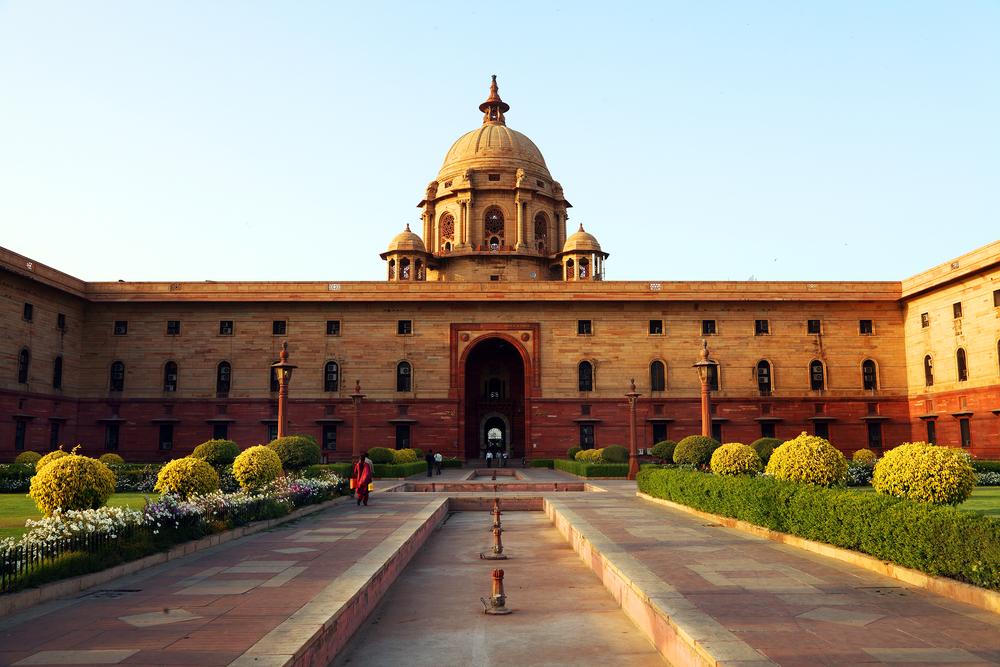India’s upper house of parliament unanimously passed a long awaited bill this week, allowing the creation a unitary tax system and finally achieving a completely integrated single market within the country. Economists are confident that the revision of India’s fragmented taxing system can increase the economy’s efficiency and create up to a 2% increase in GDP growth per year.
Bill will bring country together under single tax system
The bill, over a decade in the making, will amend the Indian constitution to allow a replacement of the country’s mix of national, state level and local taxes by a unified value added tax system.
Finance Minister Arun Jaitley hailed the move as “the most significant tax reforms in Indian history.”
It will create a unified single market which brings together the vast amount of the country’s 1.25bn consumers and fully integrate its current £1.5tn economy. Under the new tax system consumers will pay the same taxes in every Indian state. Products such as electronics and motorbikes will become cheaper but prices may increase for goods such as tobacco and fizzy drinks as well as services.
Economists believe reforms will boost economic growth in India
While it took over a year to get the bill passed in the upper house, technocrats, economists and businessmen alike welcome the final decision to move forward with the reforms. Most economists believe that the creation of a single market will increase the efficiency of the country’s economy and may add as much as 2% to its yearly GDP growth. During the debate of the bill in the Upper House Arun Jaitley said: “It would certainly give a boost [to] the economy, which is required at this critical stage.”
India overtook China as the world’s fastest growing economy in 2015 when the country’s GDP rose by a total of 7.5%, compared to China’s increase of 6.9%. At the end of the first half of 2016, results pointed towards India staying in this position with growth levels indicated at 7.6%. But as the global economy faces challenges of low oil prices and economic uncertainty in Europe due to the Brexit-vote, ongoing terror threats and the looming threat of another banking crisis in Italy, countries all around the globe have to strive for increases in efficiency to achieve growth targets.
Business will profit from the simplified tax system
Under the new system businesses will be able to reclaim tax credits which were already paid by suppliers, giving businesses more investment incentives. Further, the creation of an integrated market throughout the country will make it easier to transport goods between different Indian states, removing much of the bureaucratic and logistical challenges as well as the great cost faced currently.
In an interview with indianexpress, Bhaskar Pramanik, Chairman of Microsoft India commented:
“I am pleased that the Goods and Services Tax (GST) Bill was passed in the Rajya Sabha today. It is a positive development and I hope the Government will implement this long pending reform by April 1, 2017. The Government’s idea of a single tax regime is crucial to improve ease of doing business in India and address the ambiguities of the current indirect tax landscape, proving beneficial for the economy, at large.”
New tax bill will promote Modi’s “Make in India” – Mission

The new goods and services tax will also promote Prime Minister Narendra Modi’s goal of driving the growth of local manufacturing. The promotion of local production and Indian goods is one of Modi’s most prominent policy goals, targeted by a range of policies under the “Make in India” flagship. Policies included the promotion of local manufacturing, the support of intellectual property rights and the opening of the country’s economy to 100% FDI under the automated route in many sectors including broadcasting, manufacturing, agriculture, whole-sale trading and food production retail trading.
The new tax system will reduce the burden of overlapping and differing state taxes, therefore remove many of the current barriers to doing business in India for both local and international companies.
Foreign companies welcome revisions
The new unified tax system will also make it easier for multinational corporations to make full use of the potential of the Indian market. Companies such as IKEA, H&M, Gap, Zara and many of Japan’s and Western countries’ car makers will face simpler bureaucratic processes and lower charges when selling their products on the Indian market.
Complications to enact bill still lie ahead
While the unanimous vote of the upper house this week has been celebrated as a huge success, it will be difficult to meet the April 1st deadline for enactment.
The amendment of the constitution requires at least 15 of the 25 Indian states to approve the new piece of legislation, which may take several months. Some experts worry that individual states may not be inclined to approve the bill at all, as under the new unified tax system local governments will lose revenue from taxation for which they will not be compensated over the coming 5-year period.
Further, as the new tax is to be electronic rather than a manually filled, an immense update in the government agencies IT infrastructure will be necessary to run the new system.
Rajeev Dimri, partner at BMR Associates said: “It is not impossible but a lot of agencies will have to work double time to meet the April 1 deadline.
Katharina Fleiner 05/08/2016

